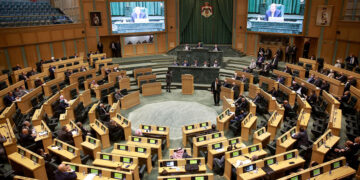(Washington D.C., February 2, 2022) – The Egyptian government's announcement of a broad pardon of certain categories of prisoners excludes those convicted on charges related to political speech or association and will provide little relief for the nearly 60,000 unjustly detained political prisoners, said Democracy for the Arab World Now (DAWN).
The pardon, announced as a Presidential Decision on January 22, grants conditional release for prisoners sentenced to life imprisonment before 2007, or who have served at least one-third of a five-year sentence, but excludes those convicted of "crimes against the state," such as "spreading false information."
"There is, by design, little chance that these pardon measures will result in the release of prisoners of conscience or political prisoners," said John Hursh, Program Director of DAWN. "Instead, these measures could make it even harder for prisoners serving long sentences for peaceful activism to receive a pardon even when the circumstances clearly call for it."
On January 22, the Egyptian Official Gazette published Presidential Decision 13/2022, outlining the legal process for granting pardons to prisoners to commemorate "Police Day" and the January 25 Revolution. The decision allows Egyptian authorities to pardon and release prisoners prosecuted and imprisoned for a life sentence prior to 2007 or who have served at least one-third of a five-year sentence, but excludes prisoners convicted of the catch-all category of "crimes against the state," and thus is unlikely to result in significant pardons for the more than 60,000 political prisoners arrested since the 2013 coup.
"Rather than release all those unjustly detained and subject to inhumane conditions, including systematic and widespread torture, or address the many structural issues of Egypt's broken criminal justice system, such as endless pretrial detention and a lack of due process, this decision further subjectivizes the pardon process, while all but ruling out its application towards prisoners of conscience or political prisoners," said Hursh.
The presidential decision makes two categories of prisoners eligible for pardons. The first category is prisoners serving a life sentence who have already served fifteen years of that sentence by January 25, 2022. To qualify, prisoners would have to have been sentenced by 2007, thereby excluding anyone sentenced since the 2011 Revolution. Prisoners receiving a pardon under this category will be placed under police surveillance for five years. The second category is prisoners who have served at least one-third of a maximum five-year sentence by January 25, 2022, with the caveat that the sentence cannot exceed the pardoned period.
The presidential decision also states that these pardons are not available to prisoners who the government has prosecuted for committing a crime against the state. This purposefully vague provision allows the Supreme State Security Prosecution to deny pardons to many if not most prisoners of conscience and political prisoners based on their charges deemed to be against the state, like "joining a terrorist organization" or "spreading misinformation." It also states two additional conditions for pardon: that the prisoner is well behaved and does not represent a threat to society. Without further guidance as to what these conditions entail, their interpretation will be arbitrary and politicized, providing Egyptian officials one more reason to deny pardon to prisoners.
Finally, the presidential decision requires the formation of a Supreme Security Committee led by the Head of Prisons within the Ministry of Interior to review and approve pardons.
"This committee—which would be far from impartial or independent—provides one more layer of bureaucratic oversight into what is already a vague and subjective process designed to result in little, if any, progress in addressing Egypt's human rights crisis and its intertwined prison crisis," said Hursh.





































